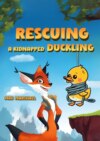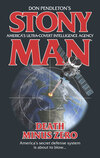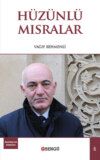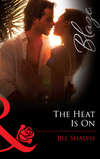Kitabı oku: «The Two Magics: The Turn of the Screw, Covering End», sayfa 9
XXII
Yet it was when she had got off—and I missed her on the spot—that the great pinch really came. If I had counted on what it would give me to find myself alone with Miles, I speedily perceived, at least, that it would give me a measure. No hour of my stay in fact was so assailed with apprehensions as that of my coming down to learn that the carriage containing Mrs. Grose and my younger pupil had already rolled out of the gates. Now I was, I said to myself, face to face with the elements, and for much of the rest of the day, while I fought my weakness, I could consider that I had been supremely rash. It was a tighter place still than I had yet turned round in; all the more that, for the first time, I could see in the aspect of others a confused reflection of the crisis. What had happened naturally caused them all to stare; there was too little of the explained, throw out whatever we might, in the suddenness of my colleague’s act. The maids and the men looked blank; the effect of which on my nerves was an aggravation until I saw the necessity of making it a positive aid. It was precisely, in short, by just clutching the helm that I avoided total wreck; and I dare say that, to bear up at all, I became, that morning, very grand and very dry. I welcomed the consciousness that I was charged with much to do, and I caused it to be known as well that, left thus to myself, I was quite remarkably firm. I wandered with that manner, for the next hour or two, all over the place and looked, I have no doubt, as if I were ready for any onset. So, for the benefit of whom it might concern, I paraded with a sick heart.
The person it appeared least to concern proved to be, till dinner, little Miles himself. My perambulations had given me, meanwhile, no glimpse of him, but they had tended to make more public the change taking place in our relation as a consequence of his having at the piano, the day before, kept me, in Flora’s interest, so beguiled and befooled. The stamp of publicity had of course been fully given by her confinement and departure, and the change itself was now ushered in by our non-observance of the regular custom of the schoolroom. He had already disappeared when, on my way down, I pushed open his door, and I learned below that he had breakfasted—in the presence of a couple of the maids—with Mrs. Grose and his sister. He had then gone out, as he said, for a stroll; than which nothing, I reflected, could better have expressed his frank view of the abrupt transformation of my office. What he would now permit this office to consist of was yet to be settled: there was a queer relief, at all events—I mean for myself in especial—in the renouncement of one pretension. If so much had sprung to the surface, I scarce put it too strongly in saying that what had perhaps sprung highest was the absurdity of our prolonging the fiction that I had anything more to teach him. It sufficiently stuck out that, by tacit little tricks in which even more than myself he carried out the care for my dignity, I had had to appeal to him to let me off straining to meet him on the ground of his true capacity. He had at any rate his freedom now; I was never to touch it again; as I had amply shown, moreover, when, on his joining me in the schoolroom the previous night, I had uttered, on the subject of the interval just concluded, neither challenge nor hint. I had too much, from this moment, my other ideas. Yet when he at last arrived the difficulty of applying them, the accumulations of my problem, were brought straight home to me by the beautiful little presence on which what had occurred had as yet, for the eye, dropped neither stain nor shadow.
To mark, for the house, the high state I cultivated I decreed that my meals with the boy should be served, as we called it, downstairs; so that I had been awaiting him in the ponderous pomp of the room outside of the window of which I had had from Mrs. Grose, that first scared Sunday, my flash of something it would scarce have done to call light. Here at present I felt afresh—for I had felt it again and again—how my equilibrium depended on the success of my rigid will, the will to shut my eyes as tight as possible to the truth that what I had to deal with was, revoltingly, against nature. I could only get on at all by taking “nature” into my confidence and my account, by treating my monstrous ordeal as a push in a direction unusual, of course, and unpleasant, but demanding, after all, for a fair front, only another turn of the screw of ordinary human virtue. No attempt, none the less, could well require more tact than just this attempt to supply, one’s self, all the nature. How could I put even a little of that article into a suppression of reference to what had occurred? How, on the other hand, could I make a reference without a new plunge into the hideous obscure? Well, a sort of answer, after a time, had come to me, and it was so far confirmed as that I was met, incontestably, by the quickened vision of what was rare in my little companion. It was indeed as if he had found even now—as he had so often found at lessons—still some other delicate way to ease me off. Wasn’t there light in the fact which, as we shared our solitude, broke out with a specious glitter it had never yet quite worn?—the fact that (opportunity aiding, precious opportunity which had now come) it would be preposterous, with a child so endowed, to forgo the help one might wrest from absolute intelligence? What had his intelligence been given him for but to save him? Mightn’t one, to reach his mind, risk the stretch of an angular arm over his character? It was as if, when we were face to face in the dining-room, he had literally shown me the way. The roast mutton was on the table, and I had dispensed with attendance. Miles, before he sat down, stood a moment with his hands in his pockets and looked at the joint, on which he seemed on the point of passing some humorous judgment. But what he presently produced was: “I say, my dear, is she really very awfully ill?”
“Little Flora? Not so bad but that she’ll presently be better. London will set her up. Bly had ceased to agree with her. Come here and take your mutton.”
He alertly obeyed me, carried the plate carefully to his seat, and, when he was established, went on. “Did Bly disagree with her so terribly suddenly?”
“Not so suddenly as you might think. One had seen it coming on.”
“Then why didn’t you get her off before?”
“Before what?”
“Before she became too ill to travel.”
I found myself prompt. “She’s not too ill to travel: she only might have become so if she had stayed. This was just the moment to seize. The journey will dissipate the influence”—oh, I was grand!—“and carry it off.”
“I see, I see”—Miles, for that matter, was grand too. He settled to his repast with the charming little “table manner” that, from the day of his arrival, had relieved me of all grossness of admonition. Whatever he had been driven from school for, it was not for ugly feeding. He was irreproachable, as always, today; but he was unmistakeably more conscious. He was discernibly trying to take for granted more things than he found, without assistance, quite easy; and he dropped into peaceful silence while he felt his situation. Our meal was of the briefest—mine a vain pretence, and I had the things immediately removed. While this was done Miles stood again with his hands in his little pockets and his back to me—stood and looked out of the wide window through which, that other day, I had seen what pulled me up. We continued silent while the maid was with us—as silent, it whimsically occurred to me, as some young couple who, on their wedding-journey, at the inn, feel shy in the presence of the waiter. He turned round only when the waiter had left us. “Well—so we’re alone!”
XXIII
“Oh, more or less.” I fancy my smile was pale. “Not absolutely. We shouldn’t like that!” I went on.
“No—I suppose we shouldn’t. Of course we have the others.”
“We have the others—we have indeed the others,” I concurred.
“Yet even though we have them,” he returned, still with his hands in his pockets and planted there in front of me, “they don’t much count, do they?”
I made the best of it, but I felt wan. “It depends on what you call ‘much’!”
“Yes”—with all accommodation—“everything depends!” On this, however, he faced to the window again and presently reached it with his vague, restless, cogitating step. He remained there awhile, with his forehead against the glass, in contemplation of the stupid shrubs I knew and the dull things of November. I had always my hypocrisy of “work,” behind which, now, I gained the sofa. Steadying myself with it there as I had repeatedly done at those moments of torment that I have described as the moments of my knowing the children to be given to something from which I was barred, I sufficiently obeyed my habit of being prepared for the worst. But an extraordinary impression dropped on me as I extracted a meaning from the boy’s embarrassed back—none other than the impression that I was not barred now. This inference grew in a few minutes to sharp intensity and seemed bound up with the direct perception that it was positively he who was. The frames and squares of the great window were a kind of image, for him, of a kind of failure. I felt that I saw him, at any rate, shut in or shut out. He was admirable, but not comfortable: I took it in with a throb of hope. Wasn’t he looking, through the haunted pane, for something he couldn’t see?—and wasn’t it the first time in the whole business that he had known such a lapse? The first, the very first: I found it a splendid portent. It made him anxious, though he watched himself; he had been anxious all day and, even while in his usual sweet little manner he sat at table, had needed all his small strange genius to give it a gloss. When he at last turned round to meet me, it was almost as if this genius had succumbed. “Well, I think I’m glad Bly agrees with me!”
“You would certainly seem to have seen, these twenty-four hours, a good deal more of it than for some time before. I hope,” I went on bravely, “that you’ve been enjoying yourself.”
“Oh, yes, I’ve been ever so far; all round about—miles and miles away. I’ve never been so free.”
He had really a manner of his own, and I could only try to keep up with him. “Well, do you like it?”
He stood there smiling; then at last he put into two words—“Do you?”—more discrimination than I had ever heard two words contain. Before I had time to deal with that, however, he continued as if with the sense that this was an impertinence to be softened. “Nothing could be more charming than the way you take it, for of course if we’re alone together now it’s you that are alone most. But I hope,” he threw in, “you don’t particularly mind!”
“Having to do with you?” I asked. “My dear child, how can I help minding? Though I’ve renounced all claim to your company,—you’re so beyond me,—I at least greatly enjoy it. What else should I stay on for?”
He looked at me more directly, and the expression of his face, graver now, struck me as the most beautiful I had ever found in it. “You stay on just for that?”
“Certainly. I stay on as your friend and from the tremendous interest I take in you till something can be done for you that may be more worth your while. That needn’t surprise you.” My voice trembled so that I felt it impossible to suppress the shake. “Don’t you remember how I told you, when I came and sat on your bed the night of the storm, that there was nothing in the world I wouldn’t do for you?”
“Yes, yes!” He, on his side, more and more visibly nervous, had a tone to master; but he was so much more successful than I that, laughing out through his gravity, he could pretend we were pleasantly jesting. “Only that, I think, was to get me to do something for you!”
“It was partly to get you to do something,” I conceded. “But, you know, you didn’t do it.”
“Oh, yes,” he said with the brightest superficial eagerness, “you wanted me to tell you something.”
“That’s it. Out, straight out. What you have on your mind, you know.”
“Ah, then, is that what you’ve stayed over for?”
He spoke with a gaiety through which I could still catch the finest little quiver of resentful passion; but I can’t begin to express the effect upon me of an implication of surrender even so faint. It was as if what I had yearned for had come at last only to astonish me. “Well, yes—I may as well make a clean breast of it. It was precisely for that.”
He waited so long that I supposed it for the purpose of repudiating the assumption on which my action had been founded; but what he finally said was: “Do you mean now—here?”
“There couldn’t be a better place or time.” He looked round him uneasily, and I had the rare—oh, the queer!—impression of the very first symptom I had seen in him of the approach of immediate fear. It was as if he were suddenly afraid of me—which struck me indeed as perhaps the best thing to make him. Yet in the very pang of the effort I felt it vain to try sternness, and I heard myself the next instant so gentle as to be almost grotesque. “You want so to go out again?”
“Awfully!” He smiled at me heroically, and the touching little bravery of it was enhanced by his actually flushing with pain. He had picked up his hat, which he had brought in, and stood twirling it in a way that gave me, even as I was just nearly reaching port, a perverse horror of what I was doing. To do it in any way was an act of violence, for what did it consist of but the obtrusion of the idea of grossness and guilt on a small helpless creature who had been for me a revelation of the possibilities of beautiful intercourse? Wasn’t it base to create for a being so exquisite a mere alien awkwardness? I suppose I now read into our situation a clearness it couldn’t have had at the time, for I seem to see our poor eyes already lighted with some spark of a prevision of the anguish that was to come. So we circled about, with terrors and scruples, like fighters not daring to close. But it was for each other we feared! That kept us a little longer suspended and unbruised. “I’ll tell you everything,” Miles said—“I mean I’ll tell you anything you like. You’ll stay on with me, and we shall both be all right and I will tell you—I will. But not now.”
“Why not now?”
My insistence turned him from me and kept him once more at his window in a silence during which, between us, you might have heard a pin drop. Then he was before me again with the air of a person for whom, outside, someone who had frankly to be reckoned with was waiting. “I have to see Luke.”
I had not yet reduced him to quite so vulgar a lie, and I felt proportionately ashamed. But, horrible as it was, his lies made up my truth. I achieved thoughtfully a few loops of my knitting. “Well, then, go to Luke, and I’ll wait for what you promise. Only, in return for that, satisfy, before you leave me, one very much smaller request.”
He looked as if he felt he had succeeded enough to be able still a little to bargain. “Very much smaller–?”
“Yes, a mere fraction of the whole. Tell me”—oh, my work preoccupied me, and I was off-hand!—“if, yesterday afternoon, from the table in the hall, you took, you know, my letter.”
XXIV
My sense of how he received this suffered for a minute from something that I can describe only as a fierce split of my attention—a stroke that at first, as I sprang straight up, reduced me to the mere blind movement of getting hold of him, drawing him close, and, while I just fell for support against the nearest piece of furniture, instinctively keeping him with his back to the window. The appearance was full upon us that I had already had to deal with here: Peter Quint had come into view like a sentinel before a prison. The next thing I saw was that, from outside, he had reached the window, and then I knew that, close to the glass and glaring in through it, he offered once more to the room his white face of damnation. It represents but grossly what took place within me at the sight to say that on the second my decision was made; yet I believe that no woman so overwhelmed ever in so short a time recovered her grasp of the act. It came to me in the very horror of the immediate presence that the act would be, seeing and facing what I saw and faced, to keep the boy himself unaware. The inspiration—I can call it by no other name—was that I felt how voluntarily, how transcendently, I might. It was like fighting with a demon for a human soul, and when I had fairly so appraised it I saw how the human soul—held out, in the tremor of my hands, at arm’s length—had a perfect dew of sweat on a lovely childish forehead. The face that was close to mine was as white as the face against the glass, and out of it presently came a sound, not low nor weak, but as if from much further away, that I drank like a waft of fragrance.
“Yes—I took it.”
At this, with a moan of joy, I enfolded, I drew him close; and while I held him to my breast, where I could feel in the sudden fever of his little body the tremendous pulse of his little heart, I kept my eyes on the thing at the window and saw it move and shift its posture. I have likened it to a sentinel, but its slow wheel, for a moment, was rather the prowl of a baffled beast. My present quickened courage, however, was such that, not too much to let it through, I had to shade, as it were, my flame. Meanwhile the glare of the face was again at the window, the scoundrel fixed as if to watch and wait. It was the very confidence that I might now defy him, as well as the positive certitude, by this time, of the child’s unconsciousness, that made me go on. “What did you take it for?”
“To see what you said about me.”
“You opened the letter?”
“I opened it.”
My eyes were now, as I held him off a little again, on Miles’s own face, in which the collapse of mockery showed me how complete was the ravage of uneasiness. What was prodigious was that at last, by my success, his sense was sealed and his communication stopped: he knew that he was in presence, but knew not of what, and knew still less that I also was and that I did know. And what did this strain of trouble matter when my eyes went back to the window only to see that the air was clear again and—by my personal triumph—the influence quenched? There was nothing there. I felt that the cause was mine and that I should surely get all. “And you found nothing!”—I let my elation out.
He gave the most mournful, thoughtful little headshake. “Nothing.”
“Nothing, nothing!” I almost shouted in my joy.
“Nothing, nothing,” he sadly repeated.
I kissed his forehead; it was drenched. “So what have you done with it?”
“I’ve burnt it.”
“Burnt it?” It was now or never. “Is that what you did at school?”
Oh, what this brought up! “At school?”
“Did you take letters?—or other things?”
“Other things?” He appeared now to be thinking of something far off and that reached him only through the pressure of his anxiety. Yet it did reach him. “Did I steal?”
I felt myself redden to the roots of my hair as well as wonder if it were more strange to put to a gentleman such a question or to see him take it with allowances that gave the very distance of his fall in the world. “Was it for that you mightn’t go back?”
The only thing he felt was rather a dreary little surprise. “Did you know I mightn’t go back?”
“I know everything.”
He gave me at this the longest and strangest look. “Everything?”
“Everything. Therefore did you–?” But I couldn’t say it again.
Miles could, very simply. “No. I didn’t steal.”
My face must have shown him I believed him utterly; yet my hands—but it was for pure tenderness—shook him as if to ask him why, if it was all for nothing, he had condemned me to months of torment. “What then did you do?”
He looked in vague pain all round the top of the room and drew his breath, two or three times over, as if with difficulty. He might have been standing at the bottom of the sea and raising his eyes to some faint green twilight. “Well—I said things.”
“Only that?”
“They thought it was enough!”
“To turn you out for?”
Never, truly, had a person “turned out” shown so little to explain it as this little person! He appeared to weigh my question, but in a manner quite detached and almost helpless. “Well, I suppose I oughtn’t.”
“But to whom did you say them?”
He evidently tried to remember, but it dropped—he had lost it. “I don’t know!”
He almost smiled at me in the desolation of his surrender, which was indeed practically, by this time, so complete that I ought to have left it there. But I was infatuated—I was blind with victory, though even then the very effect that was to have brought him so much nearer was already that of added separation. “Was it to everyone?” I asked.
“No; it was only to–” But he gave a sick little headshake. “I don’t remember their names.”
“Were they then so many?”
“No—only a few. Those I liked.”
Those he liked? I seemed to float not into clearness, but into a darker obscure, and within a minute there had come to me out of my very pity the appalling alarm of his being perhaps innocent. It was for the instant confounding and bottomless, for if he were innocent, what then on earth was I? Paralysed, while it lasted, by the mere brush of the question, I let him go a little, so that, with a deep-drawn sigh, he turned away from me again; which, as he faced toward the clear window, I suffered, feeling that I had nothing now there to keep him from. “And did they repeat what you said?” I went on after a moment.
He was soon at some distance from me, still breathing hard and again with the air, though now without anger for it, of being confined against his will. Once more, as he had done before, he looked up at the dim day as if, of what had hitherto sustained him, nothing was left but an unspeakable anxiety. “Oh, yes,” he nevertheless replied—“they must have repeated them. To those they liked,” he added.
There was, somehow, less of it than I had expected; but I turned it over. “And these things came round–?”
“To the masters? Oh, yes!” he answered very simply. “But I didn’t know they’d tell.”
“The masters? They didn’t—they’ve never told. That’s why I ask you.”
He turned to me again his little beautiful fevered face. “Yes, it was too bad.”
“Too bad?”
“What I suppose I sometimes said. To write home.”
I can’t name the exquisite pathos of the contradiction given to such a speech by such a speaker; I only know that the next instant I heard myself throw off with homely force: “Stuff and nonsense!” But the next after that I must have sounded stern enough. “What were these things?”
My sternness was all for his judge, his executioner; yet it made him avert himself again, and that movement made me, with a single bound and an irrepressible cry, spring straight upon him. For there again, against the glass, as if to blight his confession and stay his answer, was the hideous author of our woe—the white face of damnation. I felt a sick swim at the drop of my victory and all the return of my battle, so that the wildness of my veritable leap only served as a great betrayal. I saw him, from the midst of my act, meet it with a divination, and on the perception that even now he only guessed, and that the window was still to his own eyes free, I let the impulse flame up to convert the climax of his dismay into the very proof of his liberation. “No more, no more, no more!” I shrieked, as I tried to press him against me, to my visitant.
“Is she here?” Miles panted as he caught with his sealed eyes the direction of my words. Then as his strange “she” staggered me and, with a gasp, I echoed it, “Miss Jessel, Miss Jessel!” he with a sudden fury gave me back.
I seized, stupefied, his supposition—some sequel to what we had done to Flora, but this made me only want to show him that it was better still than that. “It’s not Miss Jessel! But it’s at the window—straight before us. It’s there—the coward horror, there for the last time!”
At this, after a second in which his head made the movement of a baffled dog’s on a scent and then gave a frantic little shake for air and light, he was at me in a white rage, bewildered, glaring vainly over the place and missing wholly, though it now, to my sense, filled the room like the taste of poison, the wide, overwhelming presence. “It’s he?”
I was so determined to have all my proof that I flashed into ice to challenge him. “Whom do you mean by ‘he’?”
“Peter Quint—you devil!” His face gave again, round the room, its convulsed supplication. “Where?”
They are in my ears still, his supreme surrender of the name and his tribute to my devotion. “What does he matter now, my own?—what will he ever matter? I have you,” I launched at the beast, “but he has lost you for ever!” Then, for the demonstration of my work, “There, there!” I said to Miles.
But he had already jerked straight round, stared, glared again, and seen but the quiet day. With the stroke of the loss I was so proud of he uttered the cry of a creature hurled over an abyss, and the grasp with which I recovered him might have been that of catching him in his fall. I caught him, yes, I held him—it may be imagined with what a passion; but at the end of a minute I began to feel what it truly was that I held. We were alone with the quiet day, and his little heart, dispossessed, had stopped.




















